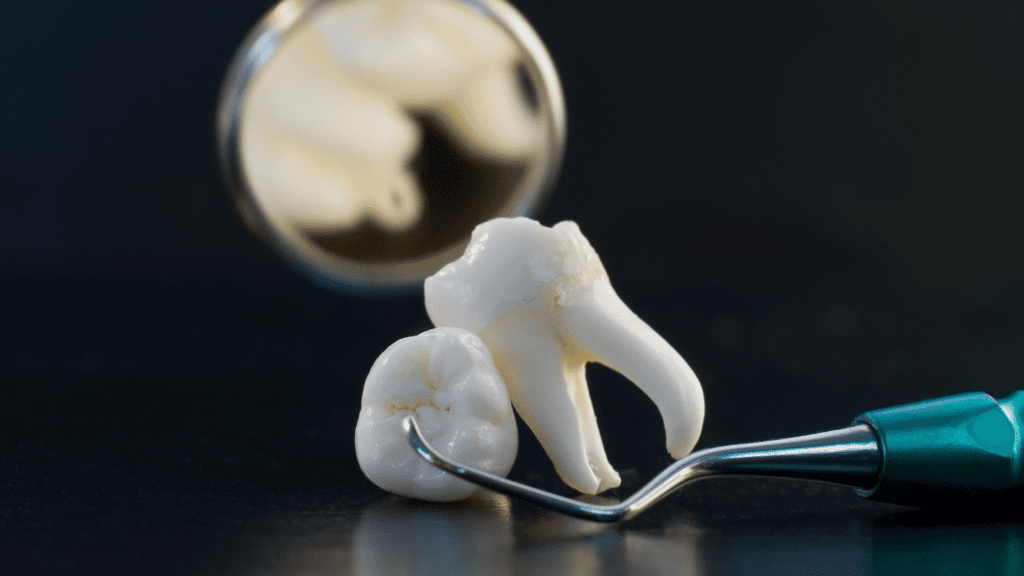A lot of people get their wisdom teeth removed. It’s become so common that it’s almost considered a rite of passage.
But why are wisdom teeth removed? And is it really necessary? Today, we’re going to look at wisdom teeth: what they are, the symptoms of impacted wisdom teeth, when removal is inevitable, and more.
An Understanding Of Wisdom Teeth
The third and last set of molars that most people get is their wisdom teeth. They usually develop for individuals between the ages of 17 and 21. For some people, it comes in without any problems and causes no issues. But for most people, wisdom teeth can give rise to serious dental problems.
The Symptoms Of Impacted Wisdom Teeth
It’s not always obvious when a wisdom tooth has become impacted. However, you may suffer any of the following when an impacted wisdom tooth becomes infected, destroys adjacent teeth, or causes other dental problems:
- Gums are red or inflamed
- Irritation of the jaw
- Gum pain or bleeding
- The area around the jaw swells up
- Having a bad case of the stinks
- A disagreeable aftertaste
- Constricted oral cavity
When is Wisdom Tooth Removal an Emergency?
Here are the three sights that you need an emergency wisdom teeth removal:
1. The Inflammation Of The Gums
The gum tissue flap left behind by partially erupted wisdom teeth might trap food particles and germs. This may cause your gums to become red, painful, and irritated.
As the region gets painful to the touch, it becomes more difficult to keep it clean, and irritation frequently leads to infection. It is recommended to seek assessment as soon as possible to prevent this from getting worse.
2. Pain And/Or Discomfort In The Posterior Region Of Your Mouth
You should not overlook any tooth-related pain you may have. If you experience discomfort and pain at the back of your mouth when eating, brushing your teeth, or simply doing nothing, this could indicate that your wisdom teeth require immediate attention.
In a short period of time, modest discomfort might escalate to severe pain. Therefore, if you experience sensitivity, pain, or any throbbing sensation, schedule an appointment with your dentist immediately.
3. Discomfort And/Or Stiffness In And/Or Around The Jaw
When wisdom teeth come in at an angle, they can start to affect your bite. This might result in stiffness and soreness in and around the jaw over time.
Additionally, you may have trouble opening your mouth or moving your jaw. If left untreated, the effects of wisdom teeth on the jaw can lead to major TMJ issues. Pain or stiffness in the jaw indicates the need for the extraction of wisdom teeth as soon as possible.
Why You Shouldn’t Put Off Emergency Wisdom Tooth Removal
If you’re experiencing pain or other problems with your wisdom teeth, it’s important to see a dentist right away.
While it may be tempting to put off wisdom tooth removal, it’s best to have the procedure done sooner rather than later. When wisdom teeth are extracted before they fully erupt, the procedure is safer and simpler, and the recovery period is typically shorter.
So if you’re having problems with your wisdom teeth, don’t wait—schedule an appointment with your dentist today.
Do I Need To Remove My Wisdom Teeth?
Some people do not need wisdom teeth removal, while others do. It all depends on the specific conditions.
If your wisdom teeth are impacted, then you will likely need to have them removed. It can cause pain and other problems, so it is best to have the impacted wisdom teeth removal surgery.
If your wisdom teeth are not impacted, then you may be able to leave them in place. However, you will still need to have them monitored by a dentist.
What To Expect At An Emergency Dental Extraction
The process of having a tooth extracted can be painful, but it is typically a safe and routine procedure.
Here is what to expect when you go in for an emergency dental extraction:
- The area around the tooth will be numbed with a local anesthetic.
- Then, the dentist will use special tools to loosen the tooth and pull it out.
- You may experience some discomfort and bleeding after the tooth has been extracted.
- You will be given instructions on how to care for the wound and how to reduce the risk of infection.
It is important to follow all of the instructions your dentist provides in order to ensure a speedy and healthy recovery.
Wisdom Teeth Removal Recovery & Aftercare Instructions
The wisdom teeth removal recovery process is not as bad as you may think. In fact, most people feel fine after the surgery. You will likely be given some pain medication to take home with you, and you should take it as directed. You will also be given instructions on how to care for your surgical site.
Moreover, you should expect some swelling and bruising in the days following your surgery. It’s very normal, and it should go away on its own in a week or two. You should also expect some minor bleeding. If the bleeding does not stop after a few hours, or if it becomes excessive, please call your dentist.
You will need to avoid certain activities in the days following your surgery. Here are a few tips to make the recovery process as smooth as possible.
- Ice the area. Place an ice pack in the area for fifteen minutes every hour. This will help reduce swelling and pain.
- Take over-the-counter medications as needed. Ibuprofen or Tylenol can help with pain and swelling.
- Drink lots of fluids. Water, juice, and broth will all help keep you hydrated and speed up the healing process.
- Avoid crunchy or chewy foods. Until the area has healed, stick to soft, easy-to-chew foods to avoid irritating the surgery site.
In general, you should expect to feel better within a week or two of your surgery.
However, it is important to follow your dentist’s instructions carefully in order to ensure a quick and healthy recovery.
Conclusion
The decision to have wisdom teeth removed is not always an easy one.
However, there are times when wisdom teeth removal can be an emergency. One reason for this is that wisdom teeth can become impacted, which can lead to a number of problems, including pain, swelling, and infection.
In some cases, the removal of wisdom teeth can even be life-saving. If you are considering having your wisdom teeth removed, it is important to talk to your dentist about the pros and cons of the procedure.
Stay safe, and let those pearls shine!


